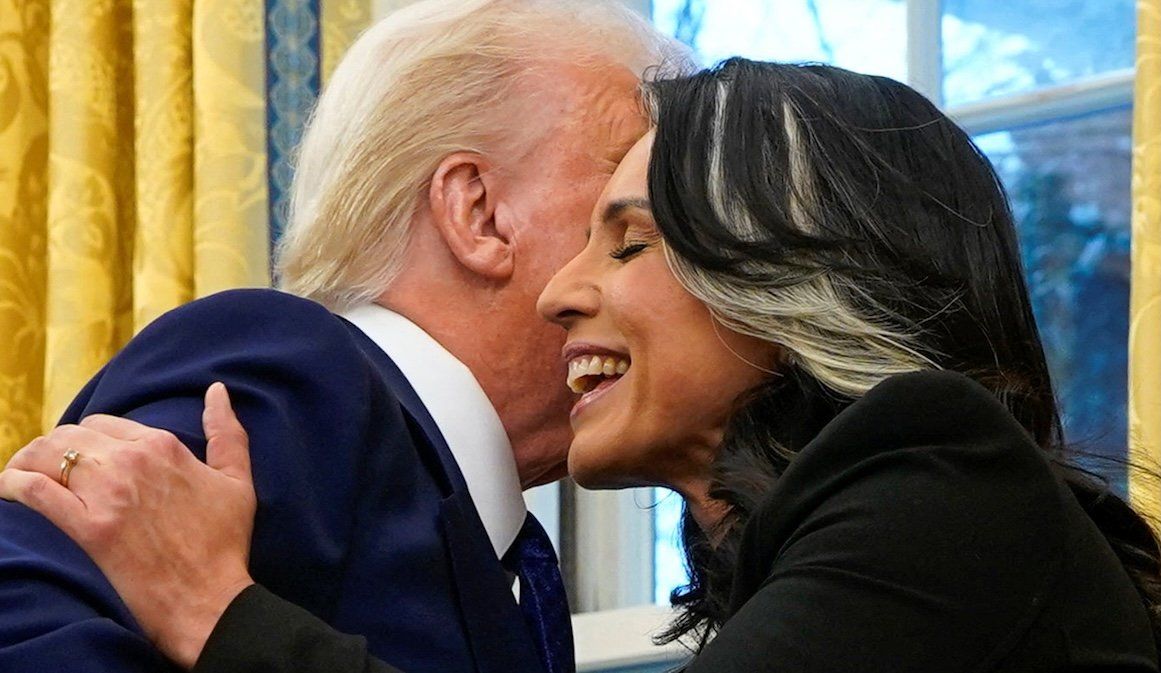Tulsi Gabbard hugs President Donald Trump in the Oval Office at the White House in Washington, D.C., on Feb. 12, 2025.
REUTERS/Nathan Howard
Despite opposition from Democrats and skepticism from some Republicans, the US Senate voted Monday to confirmTulsi Gabbard as Director of National Intelligence in a 52-48 vote. Kentucky Sen. Mitch McConnell sided with the Democrats against Gabbard, the only Republican to do so. McConnell is concerned about Gabbard’s support of Russian President Vladimir Putin and what he sees as her soft approach to China. The intelligence community has echoed similar concerns, including Gabbard’s opposition to regime change in Syria. Gabbard once said of the country’s recently deposed dictator, “Assad is not the enemy of the United States, because Syria does not pose a direct threat to the United States.”
On Thursday, the Senate voted to confirmRobert F. Kennedy Jr. as Health and Human Services Secretary. The vote also went along party lines, 52-48, with McConnell also voting with Democrats against Kennedy.
RFK Jr., like Gabbard, has set off alarm bells. Ian Bremmer, founder and president of Eurasia Group, says Kennedy’s Make America Healthy Again movement is “set to shake up health policy” in the US. MAHA, says Bremmer, is “a worldview that blends concerns about corporate influence on healthcare with skepticism towards mainstream medicine.” It’s also made up, notes Bremmer, of wellness culture, vaccine hesitancy, alternative medicine, and deep state conspiracy – and it crosses ideological divides. It is, in a word, messy, and will almost certainly do what its proponents promise: upset the status quo on health policy in the US.